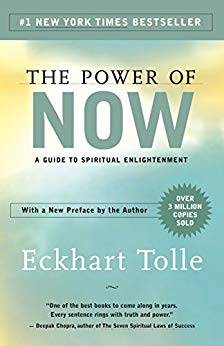

This article is an excerpt from the Shortform summary of "The Power of Now" by Eckhart Tolle. Shortform has the world's best summaries of books you should be reading.
Like this article? Sign up for a free trial here .
What is psychological time? How does it differ from clock time? Learn about how psychological time distracts you from being present, and how to get out of psychological time so that you can discover your true self.
How Humans Deal with Time
Humans created the concept of time.
We know that time passes in the way things progress and evolve — the sun and the moon rise and fall, and the four seasons cycle with each rotation around the sun. But humans created ways of measuring time (minutes, days, years), and we constantly think about past and future points in time. We cling to time because the past gives us a sense of identity, and the future holds hope. Both are illusions, as we will discuss more later.
In contrast, look at nature: Plants and animals go through life in the Now, living and dying without regret or anxiety about the future. They may learn from the past, but they don’t dwell on it. They are always engaged in the task at hand.
What is Psychological Time? What is Clock Time?
There are two forms of time: clock time and psychological time.
Clock time is used for practical purposes, like making appointments, learning from the past, setting goals, and predicting/planning for the future. Clock time is always tied to impacting how you act in the Now.
- When you set and pursue goals in clock time, you are present and in touch with your true self, meaning that you know that you are already whole and complete. With this knowledge, you will not be so focused on the goal that you don’t experience the journey, nor will you be paralyzed by a fear of failure.
Psychological time, on the other hand, is the preoccupation with past and future in a non-productive way, like playing over and over in your head a conversation you had with your spouse, or stressing about whether you will be considered for a promotion. Psychological time takes over your thoughts and pulls your attention away from the present.
You may attempt to use clock time to reflect on a past situation you can learn from or to set a goal for the future, but be aware of your state of mind: Clock time can turn into psychological time if you begin dwelling on the past or future.
- (Shortform example 1: You just found out that you did not get a job you interviewed for. If you reflect on your application process and interview to determine how you can improve your chances for the next opportunity, you are visiting the past in clock time. However, if you dwell on what you should have done differently, berate yourself for stumbling over an interview question, or blame the company for not seeing your value, you are in psychological time.)
- (Shortform example 2: You set a career goal to become the CEO of a company. If you define and pursue the steps to get there over time — like networking with other professionals, expanding your knowledge and skill set, and pursuing promotions that help you climb the ladder toward that top position — you are using clock time. But if you become consumed by the anticipation of each next step, the goal comes to define you, and you are no longer experiencing the journey, then you’ve slipped into psychological time.)
Psychological time distracts us from the brilliance and vibrancy of the Now, creating an unsatisfactory life. That dissatisfaction then fuels an obsession with the future as a form of hope and escape from the present, creating a vicious cycle.
People facing chronic hardship often rely on hope to get them through. While hope can feel like it keeps you afloat, it is acting as an escape from the present by keeping you focused on the future. Hope does nothing to change or help you accept the present situation; it is a distraction and short-term fix. After a while, many people get tired of hoping while still dealing with the same challenges, so they eventually give up hope.
Don’t Wait to be Fulfilled by Psychological Time
There are moments in life when we feel like we are at time’s will, when it feels as if there is nothing to do but wait — whether it’s for the traffic light to turn green or for your life to make a drastic turn. There are two types of waiting, based on whether you’re using clock time or psychological time: small-scale and large-scale.
Small-scale waiting is what you do in line at the post office or DMV. This form of waiting happens in clock time, and allows you to still be present.
- Use these situations — like waiting to check out at the grocery store or waiting to pick your child up from school or sports practice — as opportunities to be present. Give yourself that time to simply observe the sights and sounds around you, and for those few minutes try not to let your mind wander to your to-do list or that tense conversation you had with your coworker this morning.
Large-scale waiting is perpetually waiting for something that you think will make you happy or make your life more complete — like your next vacation, reaching a certain point of success in your career, or meeting the perfect partner. Large-scale waiting is when you’re constantly waiting for the thing that will supposedly make you happy or fill a deeper void in your life. This is another psychological time trap.
We’ll dive deeper into practical tips for staying present in later sections.
———End of Preview———

Like what you just read? Read the rest of the world's best summary of "The Power of Now" at Shortform . Learn the book's critical concepts in 20 minutes or less .
Here's what you'll find in our full The Power of Now summary :
- Why you feel pain from the past, and how to get rid of it
- How to be more present and stop worrying about the future
- The 8 key ways to achieve mindfulness






